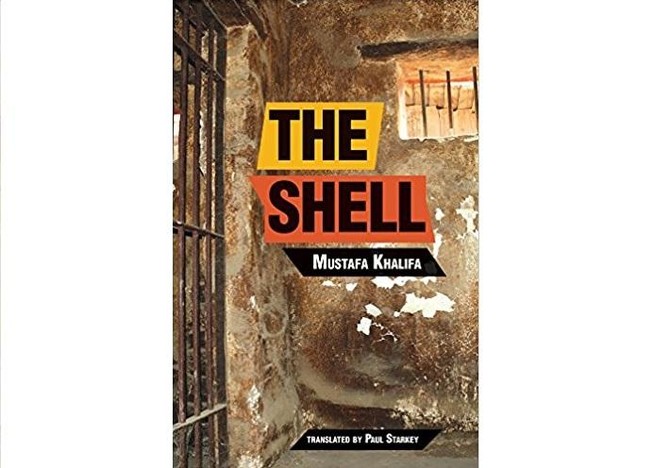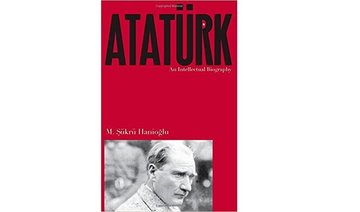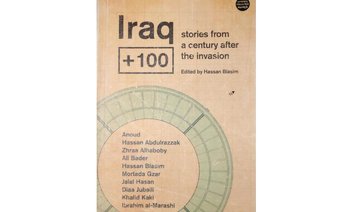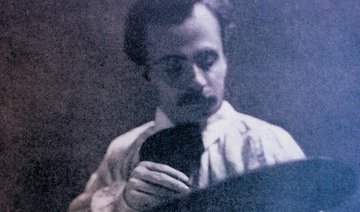“The Shell” is the debut novel of Syrian exile Mustafa Khalifa. It is a terrifyingly realistic account of a man who is mistakenly arrested for being an extremist, and is thrown into a desert prison for 14 years without trial. Originally written in Arabic and published in 2006 in Lebanon, the novel was translated into English by award-winning translator Paul Starkey in 2017.
The novel begins with the narrator leaving Paris after graduating from film school. He longs to go back home to Syria. In France he will always be treated like a foreigner, but in Syria he has the opportunity to shine and “confirm my own existence.”
But the moment he steps off the plane and into passport control, his life changes. In what feels like minutes, he has been transferred to a security detention center and is being tortured for information. He is accused of being a member of the Muslim Brotherhood, whose soul mission is to oust the president. He repeatedly tells them he is an atheist and former Christian. His pleas fall on deaf ears, and will do so for years to come.
“The Shell” is not for the fainthearted. It does not read like a novel but like a diary, as Khalifa intended. The way he describes the physical and psychological torture leaves readers feeling as helpless as the narrator. The way it is written and the way the torture is described, it is as if the reader is in the cell with him enduring those long, painful, soul-crushing years. Khalifa’s novel is dark with small bouts of light. It is menacing, heartbreaking and at times kind.
It is a complete picture of the brutality of power and of those who are hired to oversee it. For 14 years, the narrator did not have any writing implements, and so commits himself to “mental writing.” Taking his cue from youths learning the Qur’an from the sheikhs in jail, he commits his prison life to memory. “I’d already gradually converted my mind into a tape recorder, on which I recorded everything I saw and some of what I heard.”
The narrator quickly discovers the cruelty of everyday life in the prison at the hands of guards, soldiers and military police. The prison is massive, with seven yards, 37 dormitories and new wings being built. It is where he loses himself and finds himself a different man. It is where he spends most of his youth, from his late 20s through his 30s. He is shunned by other prisoners for being Christian and therefore a government spy.
He eventually finds his voice and his courage, but not without consequence. Many times in prison, the narrator is broken and pieced back together, mentally and physically. “My professional and artistic sensibility was crouching in a far-off corner, watching but not intervening — a sensibility that remained beyond the domain of pain and anxiety, awake and neutral, observing and recording however great my own psychological and physical pain.”
For 14 years, the narrator lives with hundreds of prisoners, guards and military police, his life hanging in the balance. He lives among many accused radicals in Yard 1, where “hell opened its widest doors, and we were its fuel!” Among the prison population, the “municipals” — imprisoned soldiers — are top of the food chain.
Then come the “fedayeen,” physically strong young volunteers who undertake important tasks. They bring food to cells, and take the place of the elderly and sick when it comes to torture. “Their actions were characterized by great sincerity and an abandon that sprang from deep faith.”
But each ignores the narrator, who must fight battles on all fronts. He must save his life from radicals who believe he is not pure and so should be killed, and from the cruelty of the prison police, adjutant and governor. When he hears the key in the cell door, he feels a pang of fear that at any moment his life could be gone. Besides torture, the narrator endures the summer heat and winter chill.
Khalifa’s novel is menacing and difficult to read, but within the torture and the distress are glimmers of insight and life from a perspective that can only come from a caged man. His novel is methodical, each sentence wrapping itself around the narrator to create his shell.
The reader is in the cell with him throughout. Khalifa writes of clear and stark contradictions, of power struggles that strip away humanity. Bleak but brave, the novel is a window into a world hidden from view, with only echoes of fading screams reaching distant ears. “As the days go by, and the succession of deaths continues, the parts that die inside us become more numerous, and the area occupied by death grows larger. I hold a graveyard inside me.”
Book Review: Diary of a caged man
Book Review: Diary of a caged man

What We Are Reading Today: ‘Machine Learning for Physics and Astronomy’ by Viviana Acquaviva

As the size and complexity of data continue to grow exponentially across the physical sciences, machine learning is helping scientists to sift through and analyze this information while driving breathtaking advances in quantum physics, astronomy, cosmology, and beyond.
This incisive textbook covers the basics of building, diagnosing, optimizing, and deploying machine learning methods to solve research problems in physics and astronomy, with an emphasis on critical thinking and the scientific method.
What We Are Reading Today: ‘Data Science for Neuroimaging’

Authors: Ariel Rokem & Tal Yarkoni
As neuroimaging turns toward data-intensive discovery, researchers in the field must learn to access, manage, and analyze datasets at unprecedented scales.
Concerns about reproducibility and increased rigor in reporting of scientific results also demand higher standards of computational practice.
This book offers neuroimaging researchers an introduction to data science, presenting methods, tools, and approaches that facilitate automated, reproducible, and scalable analysis and understanding of data.
What We Are Reading Today: ‘A History of Biology’ by Michel Morange

This book presents a global history of the biological sciences from ancient times to today, providing needed perspective on the development of biological thought while shedding light on the field’s upheavals and key breakthroughs through the ages.
Michel Morange brings to life the dynamic interplay of science, society, and biology’s many sub-disciplines, enabling readers to better appreciate the interdisciplinary exchanges that have shaped the field over the centuries.
What We Are Reading Today: ‘The Renormalization Group and Condensed Matter Physics’

Authors: David Nelson & Grace H. Zhang
Renormalization group ideas have had a major impact on condensed matter physics for more than a half century.
This book develops the theory and illustrates the broad applicability of the renormalization group to major problems in condensed matter physics.
Based on course materials developed and class-tested by the authors at Harvard University, the book will be especially useful for students, as well as researchers.
What We Are Reading Today: ‘Prehistoric Textiles’

- “Prehistoric Textiles” made an unsurpassed leap in the social and cultural understanding of textiles in humankind’s early history
Author: E.J.W.BARBER
This pioneering work revises our notions of the origins and early development of textiles in Europe and the Near East.
Using innovative linguistic techniques, along with methods from paleobiology and other fields, it shows that spinning and pattern weaving began far earlier than has been supposed.
“Prehistoric Textiles” made an unsurpassed leap in the social and cultural understanding of textiles in humankind’s early history.



















